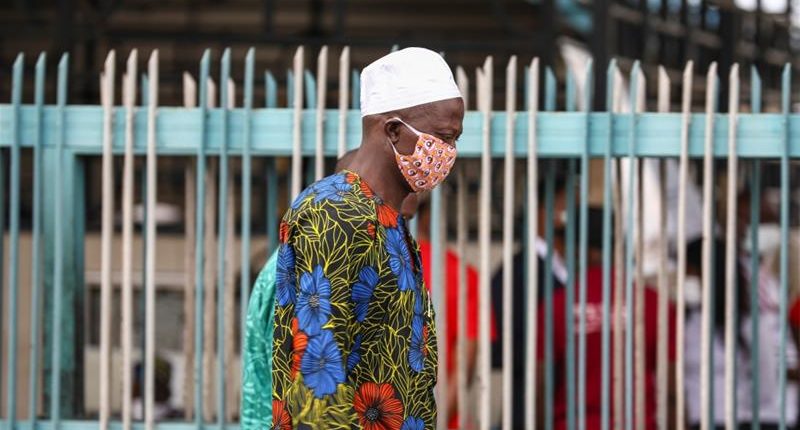Nigeria has recorded its highest single-day infection rate of COVID-19, the day Africa’s biggest economy began a six-week phase-out period of the emergency lockdown measures.
A total of 245 new cases were confirmed on Monday by the Nigeria Centre for Disease Control (NCDC), 73 of them in the country’s commercial capital Lagos.
The total number of infections in the country stood at 2,802 on Tuesday, including 93 deaths and 417 recoveries.
The update came just hours after the government relaxed restrictions in Abuja, Ogun and Lagos states, after more than four weeks of lockdowns imposed to contain the new coronavirus.
These densely populated regions will come into line with the rest of the country in which slightly looser restrictions introduced last week by President Muhammadu Buhari included an overnight curfew, mandatory face masks in public and a ban on non-essential interstate travel.
On Monday, the usually frenetic streets of the coastal megacity Lagos, largely empty during the lockdown, were busy again with cars, buses and tricycle taxis.
Despite rules banning groups of more than 20 people and stipulating that individuals remain two metres (6.6 feet) apart, large groups of people often gathered by the road waiting for public transport.
Social distancing rules were largely ignored.
Distinctive yellow minivans used as buses were full, with some passengers struggling to find space to enter vehicles.
However, in a crucial difference to pre-lockdown life, most people on the streets of Lagos wore face masks.
In the capital Abuja, in central Nigeria, many businesses were still closed.
Businesses have been allowed to reopen provided they have decontaminated their offices, can enable social distancing and offer hand sanitiser and hand washing.
The decision to begin a phased lifting of the lockdown despite the recent sharp rise in cases was criticised by some medical experts, including the Nigerian Medical Association (NMA).
The NMA president, Francis Faduyile, said on Friday the move was “very premature” and risked driving up the rate of infections, which he called a “frightening scenario”.
Chike Ihekweazu, the head of NCDC, warned that crowded scenes seen on Monday would result in more infections.
Source:Aljazeera





